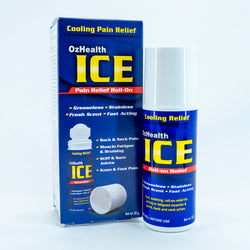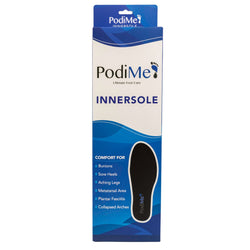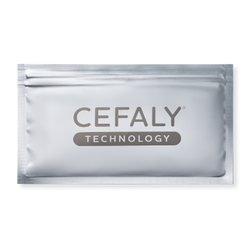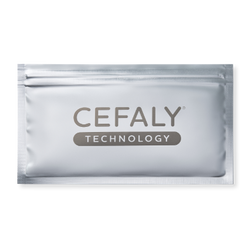Pregnancy marks a truly transformative journey for women, as their bodies undergo remarkable changes to nurture and nourish the growing life within. It's a time that calls for heightened attention to nutrition, not just for the mother, but also for the precious life developing inside her.
Amidst this incredible journey, prenatal vitamins play a pivotal role in meeting the unique nutritional demands of both the expectant mother and her developing baby. In this guide, we'll delve into the benefits of prenatal vitamins and uncover the profound significance they hold for the wellbeing of mothers-to-be.

Why Are Prenatal Vitamins Important?
The benefits of prenatal vitamins are many, with their primary focus being the promotion of optimal foetal development. These supplements are packed with essential nutrients that all play vital roles in nurturing the baby's brain, spine, and crucial organs including:
- Folic acid
- Iron
- Calcium
- Omega-3
Research has consistently shown that adding vitamins into your routine prior to and throughout pregnancy can yield remarkable outcomes. Notably, these supplements have been found to substantially diminish the likelihood of birth defects while fostering healthy growth in the baby.
Prevent Nutritional Deficiencies
Pregnancy places increased demands on a woman's body, depleting essential nutrients at a faster rate. Prenatal vitamins are specifically formulated to replenish these nutrient stores and prevent nutritional deficiencies. For instance:
- Folic acid: Adequate intake of folic acid during early pregnancy is vital for preventing neural tube defects such as spina bifida. Prenatal vitamins typically contain the recommended daily dose of folic acid (400-800 micrograms) to support healthy foetal development.
- Iron: Iron deficiency anaemia is common during pregnancy and can lead to complications such as preterm birth and low birth weight. Iron supplements help to meet the increased iron requirements during pregnancy and prevent anaemia.
- Calcium: The developing baby needs calcium for strong bones and teeth. Taking a calcium supplement ensures that both the mother and the baby receive adequate amounts of this essential mineral.
Support Maternal Health
In addition to promoting foetal development, prenatal vitamins provide several benefits to the mother's health during pregnancy. Some of these include:
- Increased energy levels: Pregnancy can be physically demanding, leading to fatigue. B vitamins, such as B6 and B12, help boost energy levels and combat pregnancy-related fatigue.
- Strong immune system: Pregnancy can temporarily weaken the immune system, making expectant mothers more susceptible to infections. Vitamin C and other immune-boosting nutrients help strengthen the immune system and support overall wellbeing.
- Mood regulation: Hormonal changes during pregnancy can sometimes lead to mood swings and depression. Prenatal vitamins often include mood-stabilising nutrients like vitamin D and omega-3, which can help improve mood and reduce the risk of postpartum depression.
Aid in Healthy Weight Gain
Weight gain is a natural part of pregnancy, but it's essential to gain weight in a healthy and controlled manner. Prenatal vitamins can play a role in supporting healthy weight gain by providing essential nutrients without adding excessive calories. These vitamins ensure that the mother's nutritional needs are met, while still allowing for appropriate weight gain for the baby's growth.
Reduce the Risk of Pregnancy Complications
Taking prenatal vitamins consistently throughout pregnancy has been associated with a reduced risk of various pregnancy complications, including:
- Preterm birth: Studies have shown that adequate intake of vitamins, especially those containing omega-3, can decrease the risk of preterm birth.
- Gestational diabetes: Certain nutrients, such as vitamin D and magnesium, may help reduce the risk of developing gestational diabetes, a condition that can affect both the mother and the baby.
- Preeclampsia: Antioxidants like vitamins C and E may have a protective effect against preeclampsia, a serious condition characterised by high blood pressure during pregnancy.
It's important to note that prenatal vitamins should not replace a healthy, balanced diet. They are intended to supplement the diet and fill any nutritional gaps that may arise during pregnancy. Therefore, it's recommended to consult with a healthcare professional to determine the appropriate vitamin regimen based on your individual needs.
Discover the Benefits of Prenatal Vitamins Today
Prenatal vitamins provide numerous benefits for both the mother and the developing baby during pregnancy. They provide essential nutrients that support optimal foetal development, prevent nutritional deficiencies, and promote overall maternal health.
By taking prenatal vitamins consistently, expectant mothers can reduce the risk of birth defects and pregnancy complications, and ensure a healthy pregnancy. However, it's important to remember that these should be used in conjunction with a nutritious diet and under the guidance of a healthcare professional. For more information about our range, get in touch with us today.

 Pharmacist Curated Products
Pharmacist Curated Products 2200+ 5 Star Reviews
2200+ 5 Star Reviews Pay with Afterpay
Pay with Afterpay Next Day Dispatch
Next Day Dispatch















